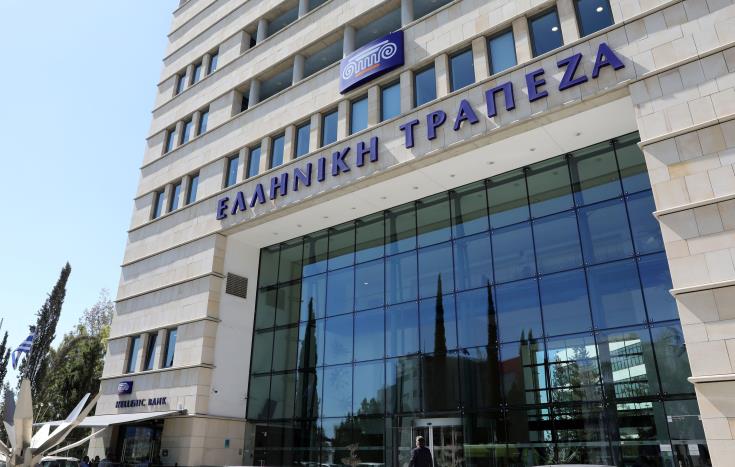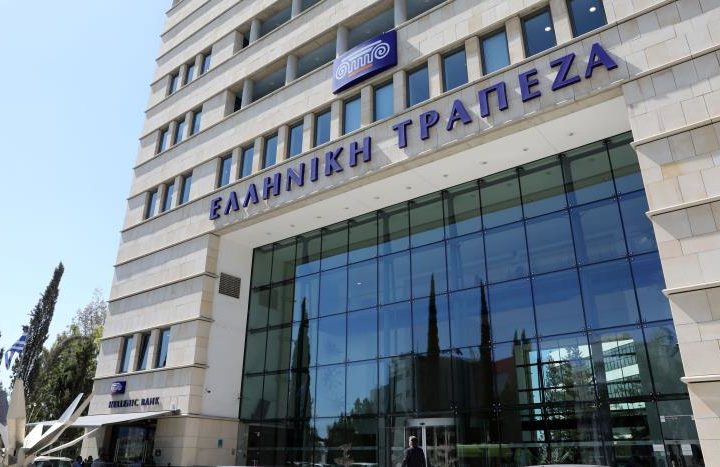Fitch has upgraded Hellenic Bank’s long-term issuer default rating (IDR) by two notches to ‘BB+’ from ‘BB-‘, and viability rating (VR) to ‘bb+’ from ‘bb-‘, while maintaining the outlook at ‘stable’.
Fitch said on Friday the upgrade reflects the combination of an improved assessment of the Cypriot operating environment and continued improvements in HB’s credit profile.
The upgrade also reflects HB’s strengthened capitalisation, reduced stock of legacy problem assets, including non-performing exposures (NPEs) and net foreclosed real estate assets, structurally improved profitability and strong deposit franchise, which translates into a large low-cost deposit base.
This follows the Moody’s upgrade of Bank of Cyprus and Hellenic Bank’s long-term deposit ratings to Baa3 from Ba1 on October 4, citing the resilience of the economy and credit conditions favouring Cypriot banks.
A few days earlier, Moody’s had upgraded Cyprus’ long-term credit rating by two notches to Baa2 from Ba1, leading the island’s rating to the investment-grade category.
The rating agency said its positive outlooks reflected expectations that the two banks will maintain solid profitability and capital metrics and continue to reduce legacy asset quality risks, countering any new nonperforming loans (NPL) that may stem from the higher interest rate environment and still-high inflation.
Justifying its upgrade, Fitch said Hellenic’s ratings reflect its strong competitive position as the second-largest bank, supporting its business prospects, stable deposit-based funding and robust liquidity.
“We believe that HB’s underwriting standards are prudent and adapt quickly to changing circumstances, and that risk controls and tools are adequate for the bank’s complexity,” it added.
“HB remains exposed to higher single-name and industry concentrations than larger peers, due to its small size and the composition of the local economy, which is skewed towards tourism, trade and services.”
Fitch said HB’s NPE ratio of 3.3% at end-June 2023 is well below historical peaks and broadly in line with southern European averages. Inflation and higher interest rates could put pressure on some borrowers, “but we expect the bank to remain below its medium-term target NPE ratio of 3% in the next two years.”
Support
“We expect to withdraw HB’s government support rating (GSR) if Eurobank S.A. (rated BB/Stable) completes the planned acquisition of a majority stake in HB. At that point, we expect to assign to HB a shareholder support rating, the level of which will depend on Eurobank’s long-term IDR and our assessment of Eurobank’s ability and propensity to support HB.”
In late September, Greece’s Eurobank was preparing a strategic roadmap to take over Hellenic Bank, with some obstacles remaining as major shareholders were unwilling to budge.
The subsidiary of Greek Eurobank SA and the island’s third largest banking institution joined Hellenic’s shareholders in June 2021, when they bought the 12.6% holding from fund managers Third Point Hellenic Recovery Fund.
Later, they made a deal with Wargaming for their 13.4% share of the bank’s capital at the end of November.
Eurobank became Hellenic’s major shareholder after acquiring another 3.2%, essentially buying out Senvest Management LLC earlier this year for EUR 16.74 mln.
Eurobank now owns 29.2% of the share capital of Hellenic Bank with the almost certain prospect of raising its percentage to 54%.
It awaits approval before mid-2024 of the deals it struck to buy the shares held by key existing major shareholders: Pimco and Wargaming.
At the end of August, Wargaming announced its decision to sell its remaining stake of 6.8% in Hellenic to Eurobank. The deal is valued at EUR 65.9 mln, equivalent to EUR 2.35 per share.
Public offer
Following the approval of the deals, Eurobank will proceed to a mandatory public offer to the shareholders of Hellenic.
Eurobank is Hellenic Bank’s largest shareholder, followed by the investment company Dimitra and Logicom, which collectively hold around 25%.
Other stakeholders, including the bank employees’ union ETYK, are expected to try to fend off the move, which seems to be inevitable.
Earlier in October, the Central Bank of Cyprus raised the level of capital buffers that the Bank of Cyprus and Hellenic Bank need to maintain due to their systemic importance to the sector.
CBC concluded its annual reassessment of the designation of credit institutions that meet the definition of O-SII institutions for 2023.
It designated the Bank of Cyprus, Hellenic Bank, Eurobank, Astrobank and Αlpha Bank as Other Systemically Important Institutions.
It set the level of the capital buffer that they must maintain “as a result of their systemic importance”.
Compared to the last update in December 2022, the Bank of Cyprus must raise its O-SII buffer requirement to 1.875%, up from the 1.50% it was.
Respectively, Hellenic Bank must raise its capital buffer to 1.25% from 1% in 2023.
The capital buffer for Eurobank was left unchanged at 0.75%, whereas Astrobank and Alpha Bank remained at 0.25%.
For 2025, the Bank of Cyprus has to increase its capital buffer to 2.25% and Hellenic Bank to 1.5%.
The rest of the banks described as “systemically important institutions” have to maintain their capital buffer rates at the same level for 2025.









